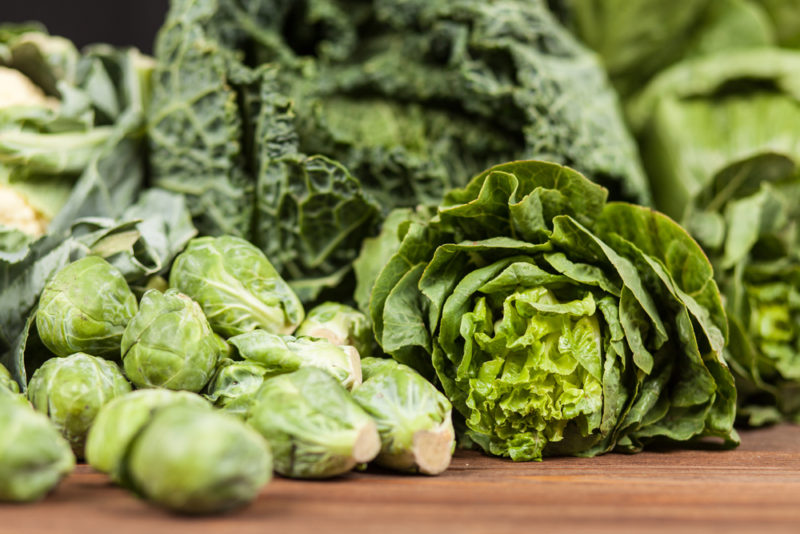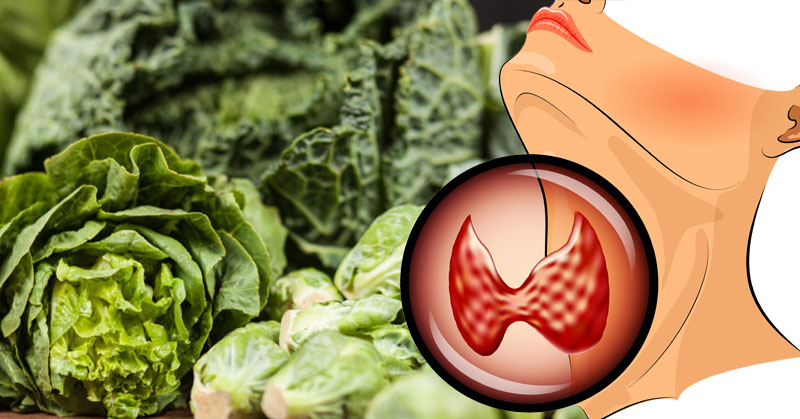Hypothyroidism is a condition caused by an underactive thyroid gland. Many different factors can lead to this condition, including autoimmune disease, thyroid surgery, and medication. But what reverses it? A hypothyroidism diet may hold a key to the answer. (1)
Additionally, when hypothyroidism goes untreated, it can lead to many other health problems. Following a hyperthyroidism diet can help treat an underactive thyroid and manage symptoms to get your body back on track. So what should you eat for an underactive thyroid?
Hypothyroidism Diet: Foods To Eat
1. Coconut Oil
A thyroid diet for weight loss should include coconut oil. Coconut oil contains medium-chain fatty acids that support a healthy metabolism. These acids also work to increase energy and fight off fatigue. Coconut oil is a natural antimicrobial, antibacterial and antioxidant that suppress inflammation in the body. (2)

2. Probiotics
A thyroid diet plan should include foods that are rich in probiotics. Proboiotics such as kefir, kimchi, kombucha, natto and other fermented foods fill the gut with helpful bacteria. A healthy gut helps reduce leaky gut syndrome, prevent nutrient deficiencies and fight inflammation.
3. Seaweed
One of the best foods for thyroid patients is seaweed, thanks to its high iodine content. (3) Iodine can help prevent nutrient deficiencies that disturb thyroid function in the body. Try kelp, nori, kombu and wakame.

4. Sprouted Seeds
Sprouted seeds contain a type of omega-3 fat called ALA. ALA plays a vital role in proper hormonal balance and healthy thyroid function. Healthy fats also stabilize your blood sugar levels and help you maintain a healthy weight. Try flax, hemp and chia seeds.
5. High-Fiber Foods
A diet for hypothyroidism should include foods that are high in fiber. Hypothyroidism is often linked to digestive problems. A high-fiber diet helps balance blood sugar levels and improve digestive health. (4) To raise your fiber intake, eat more fresh vegetables, berries, beans, lentils and seeds.

Hypothyroidism Diet Foods To Avoid
1. Brassica Vegetables
Brassica vegetables such as broccoli, cauliflower, cabbage, kale and Brussels sprouts contain molecules called goitrogens. Goitrogens have the ability to impair thyroid function, so it may be best to limit your intake of these vegetables when following a hypothyroidism diet. (5)
2. Tap Water
Most tap water contains fluoride, which is a known endocrine disruptor. (6) Tap water also contains chlorine, which can inhibit the absorption of iodine in the body. Stick to fresh water to avoid any unwanted chemicals.

3. Gluten
People who suffer from thyroid issues are often sensitive to gluten. An undiagnosed gluten sensitivity can cause inflammation, nutrient deficiencies and hormonal problems. Avoid wheat, rye and barley products and be sure to read your labels.
4. Dairy
Dairy is another food sensitivity that can be a problem for the thyroid. Avoiding cow’s milk dairy products that are not organic and have not been pasteurized can help you avoid triggering an inflammatory reaction.

5. Sugar
Processed sugar can cause many health problems, including hormonal imbalance. (7) Sugar can disrupt the hormone balance needed for proper metabolism, which can make it especially difficult for people with hypothyroidism to lose weight or maintain a healthy weight.
6. Refined Flour Products
Food made with refined carbohydrates can negatively impact hormone levels. Remove grains such as bread, cereals, pastas and baked goods from your diet to help balance hormone levels and maintain a healthy weight.
Sources:
1. American Thyroid Association
2. Wellness Mama
3. Livestrong
4. Livestrong
5. SF Gate
6. Mind Body Green
7. Everyday Health


